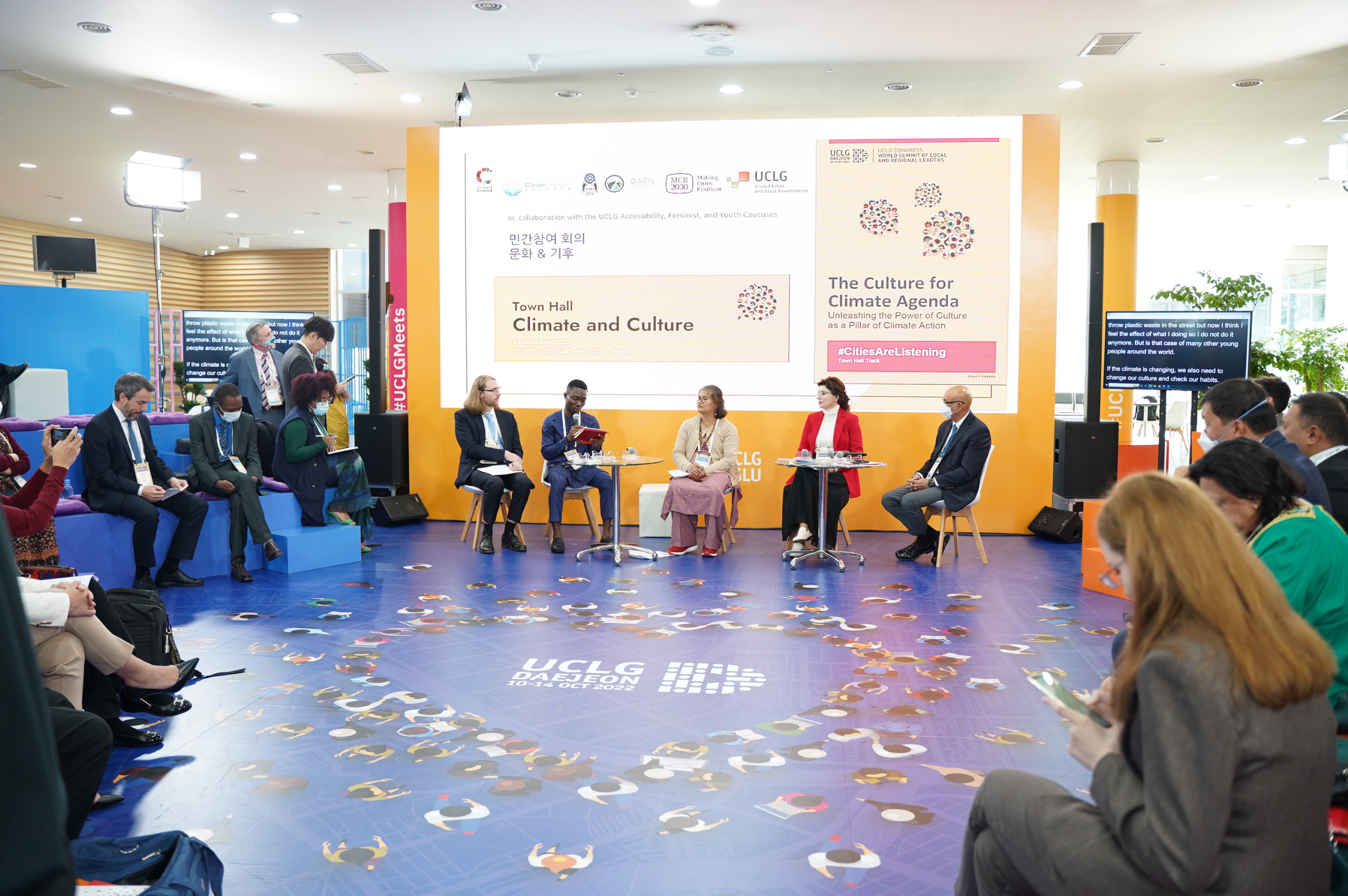The Town Hall on Culture and Climate, held on Thursday, 13 October, discussed the potential of culture to serve as a pillar for climate action and explored the cultural and social dimensions of ecological crises. The session participants proposed a new “Culture for Climate Agenda,” which entails a more significant role dedicated to culture in climate action.
During the session, participants discussed the report “The Future of Our Pasts: Engaging Cultural Heritage in Climate Action,” which was released in 2019 by the International Council on Monuments and Sites (ICOMOS). The report outlines the need for an inclusive vision of the role of cultural heritage in responding to climate change and achieving the ambitions of the Paris Agreement.
Recent experiences (e.g., natural disasters) and testimonies by scientists show that our planet is in crisis and that the majority of efforts aimed at tackling these challenges will most likely fall short. The recent IPCC reports along with other evidence from multiple scientific disciplines warn that if the course is not corrected, the world will face even more catastrophic consequences in terms of biodiversity loss and climate change. A key aspect contributing to the failure of bending the emissions curve is the exorbitant lifestyle that we in some parts of the world have come to rely on, and the carbon economy that supports that lifestyle, according to a group of scientists, including the former Vice Chair of the IPCC. They further noted that the social imagery that conveys plausible ways of living without dependence on fossil fuels is scarce and that this is not just a climate change problem. — culture plays a vital role in forming habits and perceptions. In order to achieve the crucial targets, set by the Paris Agreement, our communities need to change our mindsets and our habits. It is therefore relevant to include and consider cultural aspects for the climate action.
In the policy paper the “Culture for Climate Agenda: Unleashing the Power of Culture as a Pillar of Climate Action,”which served as the basis for the session, the authors claim that “culture and climate change are transversal, multi-faceted, multi-scalar phenomena. The contributions of specific types of culture (e.g., music, archaeology) to various dimensions of climate action (e.g., adaptation, mitigation) in disparate sectors (e.g., transport, food) are increasingly well documented.” The current omission of cultural aspects from climate action, science, and policy is becoming increasingly apparent. Culture is being recognized slowly for its potential to lead to a paradigm shift; however, the question is raised as to whether the inclusion of culture in climate action can be done fast enough given the urgency.
The policy paper offers four key building blocks of the cultural pillar for climate action: (1) culture as enabler of social imaginaries; (2) culture strengthening resilience; (3) promoting inclusive climate action through culture; and, (4) culture as a motor of climate resilient development.
For the “Culture for Climate Agenda” to succeed, it must be locally grounded and led by cities and their leaders, which are at the forefront of tackling these issues and tend to bring people together to create, innovate, and find solutions to complex problems. Moreover, cities can serve as a platform for the paradigm shift in changing the cultural perception of today’s “carbonscapes and take-make-waste” mindsets. The urgency of the climate crisis calls for immediate actions, but the good news is that may of these actions can already be taken by local and regional governments.
On the same day as this Town Hall session, the presentation of the #Culture2030Goal campaign took place to highlight the importance of culture for the successful implementation of the Sustainable Development Goals and for the UCLG’s Pact for the Future of Humanity.

